The dawn of the internet and the globalization of our world have made it easier than ever to live and work remotely. We live in a time where there’s never been so much ability to connect across the world from anywhere with a strong enough WiFi connection.
For those of us who have developed skills or discovered industries that allow us to work remotely, the option of working from more than just our hometowns has opened up more and more.
Looking for your next working home base? Here are 8 cities that are perfect for female digital nomads, rated based on their safety for women, housing prices, public transportation options, food choices, Internet, and entertainment:
1. Chiang Mai, Thailand
 Chiang Mai is THE spot for digital nomads in Southeast Asia. It’s super cheap, delicious, and if you’re just starting out it’s a great place to land.
Chiang Mai is THE spot for digital nomads in Southeast Asia. It’s super cheap, delicious, and if you’re just starting out it’s a great place to land.
Safety for women: Chiang Mai has a strong expat community, making it easy to meet other digital nomads. English is generally spoken and understood, locals are friendly and respectful. Covering up is recommended and sometimes compulsory when visiting temples and religious sites but otherwise, Thailand in general is safe for women.
Visa: Most expats and digital nomads in Chiang Mai try to obtain a double (3 months) or triple (6 months) entry tourist visa in their home country, and do the border run every 60 days, though you can extend each entry by 30 days if you pay about $60 to the immigration office before the scheduled run. Most people are happy with this option, as they get to explore the neighboring countries and have a little getaway. However, if you do not wish to do the visa run and plan to stay in Thailand for a year, look up on the 1 year ED visa and learn the Thai language.
Housing, Food, and Transportation prices:
- You can find a decent 1-bedroom apartment for about $300-$800/month through the many property agents around. Alternatively, you can rent a beautiful 1-bedroom apartment on Airbnb for about $900/month, which might be a good start before committing to a longer term lease when you first arrive. Utilities are usually included in your rental.
- Most apartments come with high-speed, stable Internet. You can also station yourself in a coworking space, which is getting more and more popular in Chiang Mai. Local SIM cards are very cheap and come with a stable 4G connection.
- Vegans rejoice! In the old city, there are so many vegan cafes, you’ll never get bored. Local street food is cheap and delicious, and if you are feeling fancy, Chiang Mai is not short of mid-range and high-end restaurants as well.
- Transportation options include the songthaew, the classic tuk tuk, and Grab (Southeast Asia’s version of Uber). A short songthaew ride costs about $0.50/ride. Grab is often a better choice than tuk tuk as they are reasonably priced. If you are confident on the road and have a valid international driving license, long-term scooter and car rentals are easy and affordable. Expect to pay about $80-$100/month for a decent scooter, and about $500/month for a decent sedan car.
Entertainment: Chiang Mai is full of yoga studios and meditation centers. There are also many cooking classes if you are interested in learning how to cook authentic Thai food. Pai, one of my favorite spots in Thailand, is only a winding ride away. You could also go on fun day trips from Chiang Mai. To meet other expats in the area, you can join the Chiang Mai Expat Women’s group on Facebook. Social apps like Tinder and Meetup are also fairly popular in the area.
➳ READ: 9 awesome things to do in Chiang Mai, Thailand
2. Taipei, Taiwan

Safety for women: Taipei is generally very safe for everyone. It’s a very walkable city with pedestrian walkways and strict traffic laws. Locals are very warm and welcoming.
Visa: It is pretty straightforward for most people – you get a 90-day visa on arrival. Taiwan is one of the main flight hubs in Asia so when your visa’s up, simply book a flight out for a weekend getaway and come back to get a new visa. If you are holding a Canadian or a UK passport, your visa can be extended by another 90 days through a local immigration agency.
Housing, Food, and Transportation prices:
- Taipei’s housing is one of the most expensive in Asia. That being said, apartments tend to be in a strategic location, with convenience stores, supermarkets, clinics, restaurants and cafes all a stone’s throw away. If you are on a budget, co-living spaces are growing rapidly in the city. Expect to pay about $550-$660 for a private room in a co-living space. You can rent a studio apartment on Airbnb for about $750-$950/month. Utilities are usually included in your rental. Coin laundry is cheap and widely available.
- Most apartments and co-living spaces come with high-speed Internet. If you prefer to work outside, there are plenty of coworking spaces in the city.
- Similar to Thailand, the night markets will spoil you with all kinds of items you can try out. For local street food, you can expect to pay about $3-$5 for a full meal. For some reason, cafes can be pretty expensive in comparison. Expect to pay about $10-$15 for a meal in a mid-range sit-down restaurant.
- If you play your cards right, getting around in Taipei can be completely free! The bike-sharing system allows you to ride for free for the first 30 minutes. After that, it is only $0.30/half an hour. Trains and buses are widespread and reliable. Taxi fares tend to be quite costly. While I do not have any personal experience with Uber in Taiwan, according to my local friends, it isn’t any cheaper than taxis.
Entertainment: There’s always something going on somewhere in Taipei. Festivals, concerts, and weekend markets will keep you entertained. If you feel like getting out of town, thanks to the efficient railway system, you can take day trips via Taipei High Speed Rail to other parts of Taiwan easily. Even within Taipei, you can hike up to Mount Elephant and enjoy being in nature with a view of the concrete jungle.
➳ READ: That one time I became an illegal alien in Taiwan
3. Bali, Indonesia
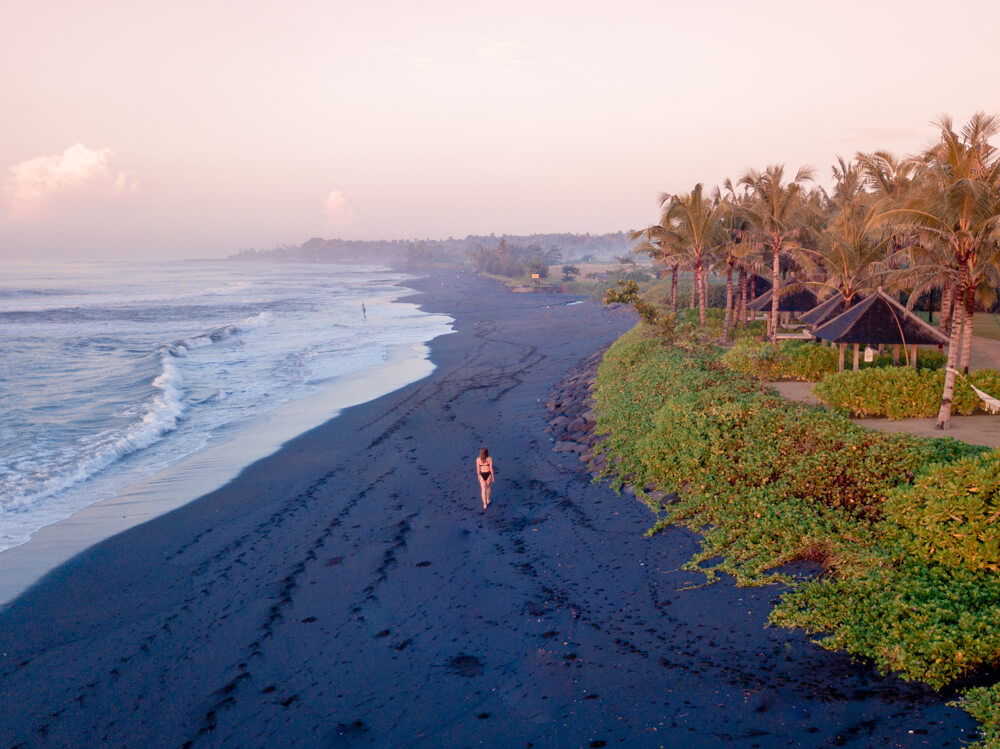
Safety for women: The locals in Bali are completely used to foreigners, and for the most part, they are welcoming and helpful. Try to establish a deeper relationship with a local family, who will be able to help you with local deals and errands. Be aware of the game of love in Indonesia, though.
Visa: You will get 30-day visa on arrival, and the visa can be extended by another 30 days at the airport or at any immigration office. If you plan to stay longer, apply for a 60-day visa before visiting Bali. That visa can be renewed 4 times for 30 days each time, earning you a total of 6-months in Bali. Another popular method is through the Social Budaya visa. You will get the same length of stay as the 60-day visa (60 + 30×4 days), but the visa requires a local sponsor. There are many local agents who will help you deal with all of this for a fee.
Housing, Food, and Transportation prices:
- A beautiful villa complete with a private pool for $600/month? Yes, that’s completely possible in Bali! There are hundreds, if not thousands of villas all over Bali available for both short and long term rentals. I recommend getting an Airbnb (like this one in Ubud with a rice field view) for the first month, and explore different areas to find out where you like most, as different areas have a different atmosphere – Ubud is spiritual, Canggu is young, Seminyak is lively.
- Most villas come with stable Internet, though they tend to be slow. Cafes are usually filled with digital nomads working on their laptops. Coworking spaces are beginning to mushroom in popular areas. SIM cards are easy to get and cheap through SimPATI.
- Every corner you turn to in Bali, there’s bound to be at least one hipster looking cafe. Authentic Indonesian food is almost a little bit hard to find on your own, but you can always ask the locals where they have dinner. Expect to pay about $10-$15 for a full meal in a mid-range restaurant or a popular cafe. Local food can cost as little as $1 if you know where to find it. You can find the best vegan restaurants here.
- Renting a motorbike is the most common way to get around in Bali, albeit not the safest. Roads are bad in certain areas, and there’s always traffic. If you choose to rent one, be sure to get a sturdy bike, and while this should go without saying, always wear a helmet. If you are not confident on a bike, Grab comes in bike form, and they are very cheap for short distance rides! Expect to pay less than $1 for a short ride. Finally, you can also hire a private driver, which can be helpful for your airport transfers.
➳ READ: The best vegan food in Bali
Entertainment: Surf’s up, baby! You will see surfers with their surfboards attached to their bikes everywhere. If you are new to surfing, Bali is a pretty good place to pick it up. You can also go check out the waterfalls, join yoga classes, or take a boat trip to Lombok, the Nusa Islands or the Gili Islands. To meet other digital nomads in the area, join Facebook groups like the Bali Expat Community or Bali Digital Nomads.
4. Ho Chi Minh City, Vietnam
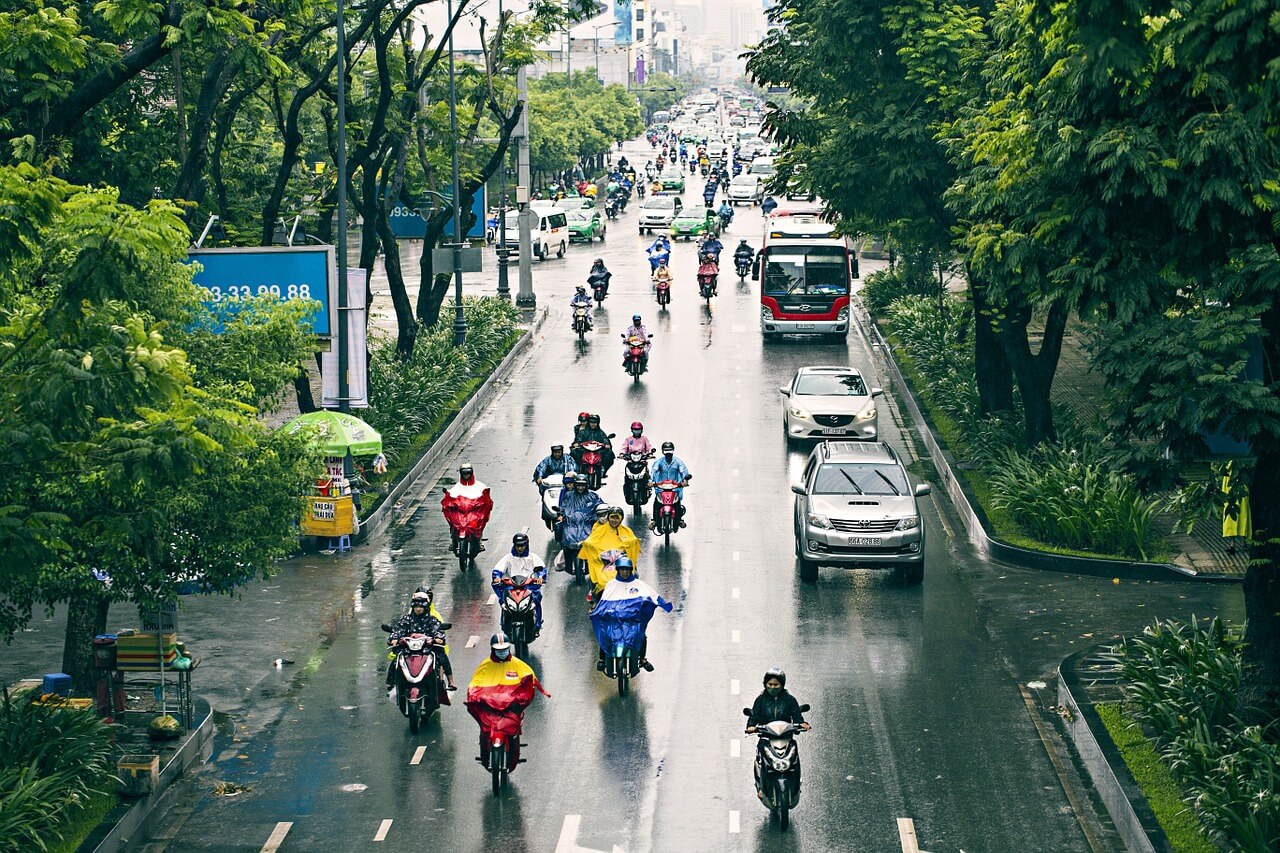
Safety for women: Like any other buzzing, rapidly developing city, Ho Chi Minh City is full of life (and people. And traffic!). Petty theft is, unfortunately, pretty common. You just have to practice the same precautions as you would back home and you will be fine! It will take some time to get used to the ever-crawling motorbikes situation, but trust the locals and let them do their thing while you cross the road. Vietnamese are fun and awesome to hang out with.
Visa: You can apply for a 1-month or 3-month visa online or through the embassy before flying to Vietnam. Note that a 3-month visa is required to officially rent a place in Vietnam. US citizens can apply for a 1-year visa online or through the embassy for $135. The ease and affordability of obtaining a visa is one of the reasons why many digital nomads choose to base themselves in Vietnam.
Housing, Food, and Transportation prices:
- Rentals are very affordable in Ho Chi Minh City, even in prime locations! We are talking about $350-$550/month for a nice, 1-bedroom apartment in the city center. On the outside, the buildings may look old and worn, but many places have completely renovated the apartments to make it comfortable to live in. Ho Chi Minh City is full of alleys and narrow streets, so consider renting an Airbnb for the first few days or weeks while finding your favorite corner.
- Most apartments come with stable Internet. Popular cafes are usually filled with digital nomads working on their laptops. and coworking spaces are beginning to mushroom in popular areas.
- Food is so deeeeelicious! You can easily get by on $1.50 on a lunch or dinner of street food, generally consisting of soup, fresh spring rolls, rice with various accompaniments, or noodles with meat. In addition, Vietnamese coffee is amazing, and typically only $1. Western food is easy to find, and because of the country’s French influence, you will find many French cafes on the riverside. Expect to pay about $5-$10 for a meal in a western restaurant.
- Hop on a Grab bike! Renting a bike or a car is not recommended in Ho Chi Minh City because of the traffic. Grab bike is extremely cheap at about less than $1 for a short ride, anyway.
➳ READ: A Vietnamese food guide from North to South
Entertainment:There are a number of interesting museums and galleries in Ho Chi Minh City. You can also take a bus to other towns, like Da Lat and Hoi An for a long weekend holiday. There seems to be a lack of online community for digital nomads and expats, but you can always easily strike up a conversation with people at the cafes and coworking spaces.
5. Lisbon, Portugal
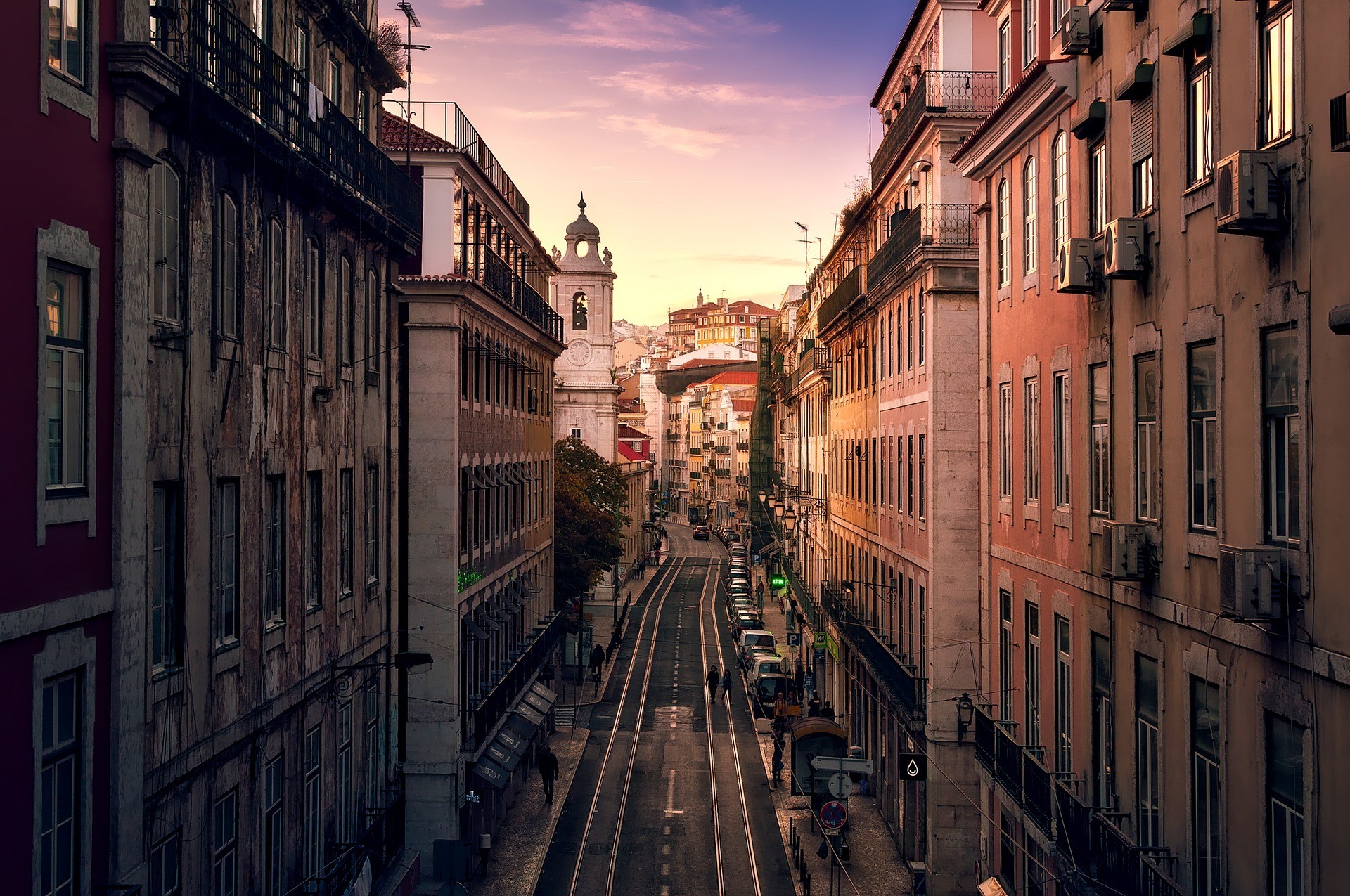
Safety for women: Lisbon is one of the safest cities in Europe. A combination of low crime rates and friendly locals mean you have little to worry about as far as safety goes. That being said, you’ll want to be mindful of petty theft and pickpockets in touristy areas.
Visa: Most nationalities get a 90-day Schengen visa on arrival. Unfortunately, you can only enter Portugal for 90 days every 180 days. So if you wish to stay longer than 3 months, check out the recently launched StartUP Visa that will allow you to stay in Portugal for a year if successful. ” or “Most nationalities get 90-day Schengen visas on arrival. Unfortunately, you can only enter Portugal for 90 days every 180 days. So if you wish to stay longer than 3 months, check out the recently launched StartUP Visathat will allow you to stay in Portugal for a year if successful.
Housing, Food, and Transportation prices:
- A nice 1-bedroom apartment in a lovely neighborhood will cost you about $1000-$1500/month, which is quite hefty. However, if you don’t mind a smaller studio or living outside the city center, a rental can cost about $750 or less. Don’t be discouraged by the high rental prices, as other expenses in Lisbon can be kept quite low!
- There are plenty of good restaurants and cafes to keep your stomach happy, especially if you are a fan of seafood. Local cafes tend to be very affordable as well. Expect to pay about $5-$10 for a full meal.
- Lisbon is a lovely city to walk in. As you will be living in a small city, you can get to pretty much everywhere on foot. When you don’t feel like walking (and I can’t blame you – Lisbon can be hilly!), Uber rides are convenient and affordable. If you prefer public transportation, you can get an unlimited pass for as low as your high rent is justified by how easy and affordable it is to get around town.
Entertainment: The weather in Lisbon is pleasant all year round. Hang out at the beach, have a lovely picnic at the park, or just go for long walks and admire the lovely local neighborhood during your free time. There are also many day or weekend trips to Porto, Sintra, and other small towns nearby. There are often events held especially for the digital nomad community – join the Lisbon Digital Nomads Facebook group to keep yourself updated.
6. Berlin, Germany

Imagine a city that truly never sleeps, is easy to afford, and is hands-down the coolest place to be of the moment. That’s Berlin for you, where you never have to wear heels or anything but black. I lived in the city for 5 years and loved the affordability and wealth of things to do. Berlin is like an onion with endless layers.
Safety for women: An uncomfortable truth about Berlin is although this city is full of artists and hipsters, many of them are unemployed and struggling. There isn’t much violent crime here but like most major European cities there is a ton of theft, and the thieves are really, really good. That being said, throughout my 5 years of living in Berlin, I was robbed once, in a crowded festival, and did not encounter any other major problems otherwise.
Visa: Most nationalities get a 90-day Schengen visa on arrival. Unfortunately, you can only enter Germany for 90 days every 180 days. If you wish to stay longer, you will be happy to hear that Germany is one of very few countries in Europe, and the world in general, that allows Americans, Canadians, Israelis, South Koreans, Japanese, Australians, and New Zealanders to stay long-term on an artist or freelance visa. Here’s a full guide on applying for it.
Housing, Food, and Transportation prices:
- A nice 1-bedroom apartment costs about $700-$1200/month, though the prices fluctuate depending on the neighborhood you are staying in. Most places do not come with full kitchen. Yep, you often have to buy the kitchen when you sign a lease. It’s also hard to get a lease without a visa, so I recommend staying in a shared flat (WG) for the first few months or so. I paid about $950/month for a top floor, 2-bedroom apartment in the hippest part of town.
- The culinary scene in Berlin is vibrant and interesting. As one of the more forward-thinking European cities, being a vegan in Berlin is super easy. There’s also a great mix of different cultures, including Turkish, Chinese, and Vietnamese to help keep things interesting. Expect to pay about $2-$5 for a small dish. As for a meal in a mid-range restaurant, expect to pay about $8-$15. You can find lots of cheap street food too.
- Buy yourself a second-hand bicycle (almost everyone I know had their bike stolen at some point. Don’t bother with a fancy bike) and you are sorted out! Berlin is a nice city to ride in. Most roads have dedicated cycle paths, and vehicles know to look out for cyclists. The city is also flat enough to walk. Public transportation is reliable and convenient. I recommend only taking a taxi when you are traveling in a group or in a hurry, as they are pretty expensive.
Entertainment: I lived in Berlin for 5 years and was never bored! There’s just so much to do in Berlin, like joining events that involve gazing into a stranger’s eyes for 45 minutes, exploring an old airport, a listening-station-turned-graffiti-park, and a bunch of other things to do. If you want to get out of the city, there are many fantastic road trips from Berlin.
➳ READ: Which Berlin neighborhood should you stay in?
➳ READ: How to get the freelancer visa to live in Berlin
7. Barcelona, Spain

Safety for women: Similar to Lisbon and Berlin, Barcelona is generally pretty safe, but you’ll want to watch out for pickpockets and thieves who tend to target foreigners. Dress up like the locals and walk confidently. Practice the same precautions as you would back home and you will be fine.
Visa: Most nationalities get a 90-day Schengen visa on arrival. Unfortunately, you can only enter Spain for 90 days every 180 days. If you wish to stay longer, you will be happy to hear that you can now apply for a Resident visa (Non-lucrative) that allows you to stay up to one year.
Housing, Food, and Transportation prices:
- You can find a decent 1-bedroom apartment for about $700-$900/month. Barcelona is a pretty big city, so don’t rush into signing that lease contract. Rent an Airbnb for the first month and explore your options.
- Spanish food is generally very yummy and hearty. There’s also a good mix of international cuisine all over Barcelona to choose from. Expect to pay about $8-$10 for a meal at a sit-down restaurant. One thing to note is that Spanish tend to eat late – dinner typically starts at 8:30pm!
- If you are comfortable on a bike, rent a Vespa and you will blend right in with the locals. The city is also bicycle-friendly, and totally walkable. Trains are reliable and efficient, and especially great for your day trips out of Barcelona.
Entertainment: There’s a lot to do in Barcelona! For most of the year, the weather is pleasant enough for an idyllic afternoon on the gorgeous beach. There are also many interesting museums, buildings, and churches for the art history buffs out there. Join the Barcelona Digital Nomads Facebook group if you’d like to meet other digital nomads, or simply have questions to ask!
8. Tallinn, Estonia
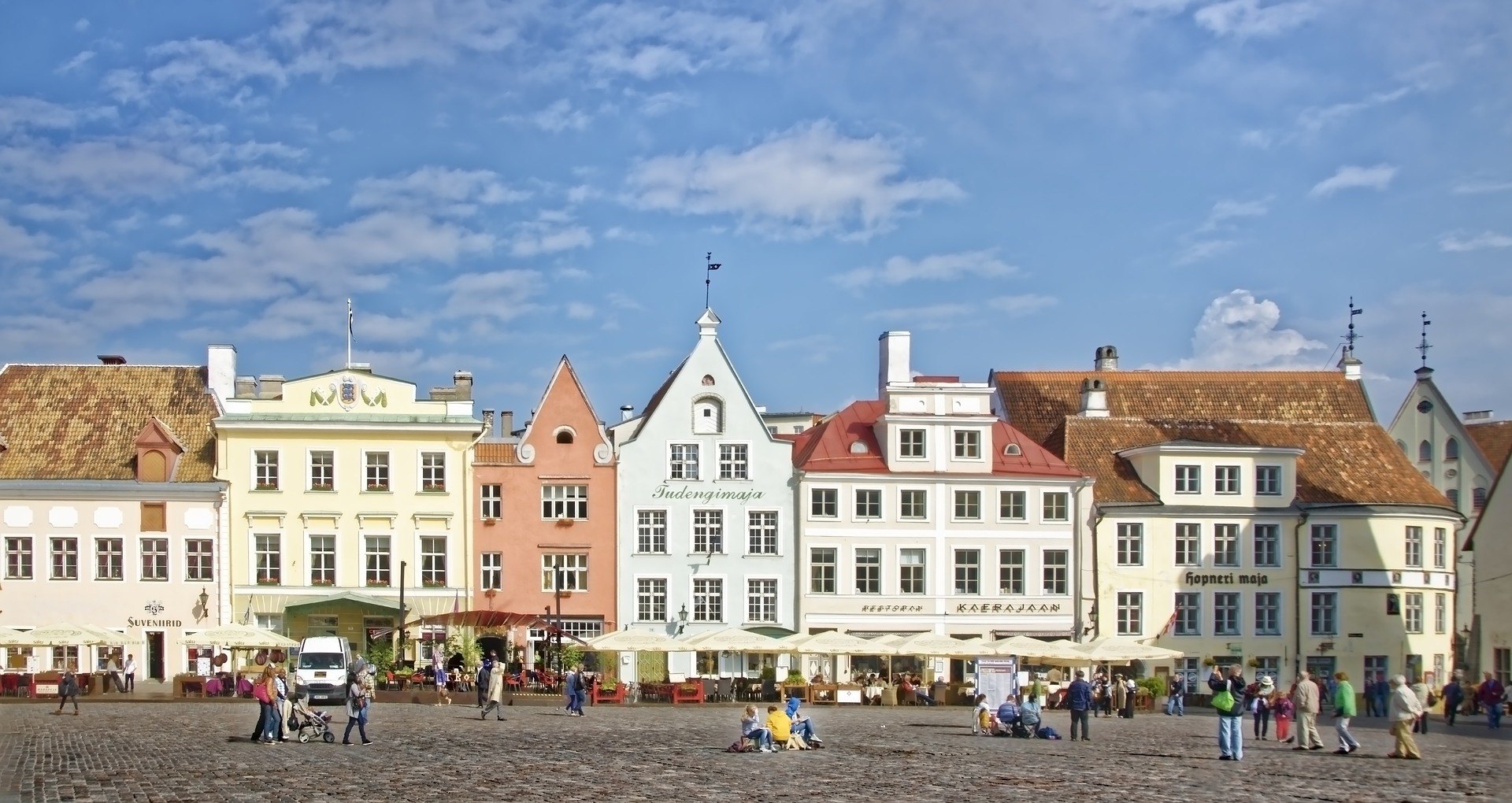
Safety for women: The Baltics are generally safe to travel and live in. Estonia is a small country with lots of friendly faces, and English is widely spoken. Tallinn, in particular, has a vibrant startup scene, so you are likely to meet lots of expats and locals working on innovative projects. That being said, the country does have a reputation for car theft and illegal drug use. As always, practice the same precautions you would at home.
Visa: Most nationalities get a 90-day Schengen visa on arrival. Unfortunately, you can only enter Estonia for 90 days every 180 days. That being said, the current visa situation in Estonia is exciting – the country plans to launch a digital nomad visa by the end of 2019, which will surely attract an even bigger group of remote workers to the country.
Housing, Food, and Transportation prices:
- You can find a decent 1-bedroom apartment for about $600-$800/month, though that requires some digging and going through a few agents. For your first month in Tallinn, consider renting via Airbnb.
- As mentioned earlier, Tallinn has a vibrant startup scene. The country is named as one of the world’s most digitally advanced societies – this means you have nothing to worry about when it comes to the Internet and getting work done.
- Unfortunately, meals tend to be quite expensive. Expect to pay about $10-$15 for a full meal in a restaurant. For that reason, try to find an apartment with a kitchen, so you can buy your own groceries and cook at home.
- You can pretty much get to everywhere on foot – just make sure you have good walking shoes as it’s mostly cobblestone. Bus and trains are generally reliable.
Entertainment: There are many lovely parks and hills in Tallinn to hang out at when you are tired of staring at the computer screen. If you are a history buff, indulge in the city’s museums and countless buildings worth seeing all over old town. For an easy day out, there are tons of coffee shops as well as weekend markets.
Inspired to move abroad yet? Regardless of where you choose, you’re in for an adventure that will give you an opportunity to meet new people, potentially save loads of money over your current living situation, and at the very least, will allow you to see a new corner of the world more deeply.
For my digital nomads out there, what are your favorite spots?
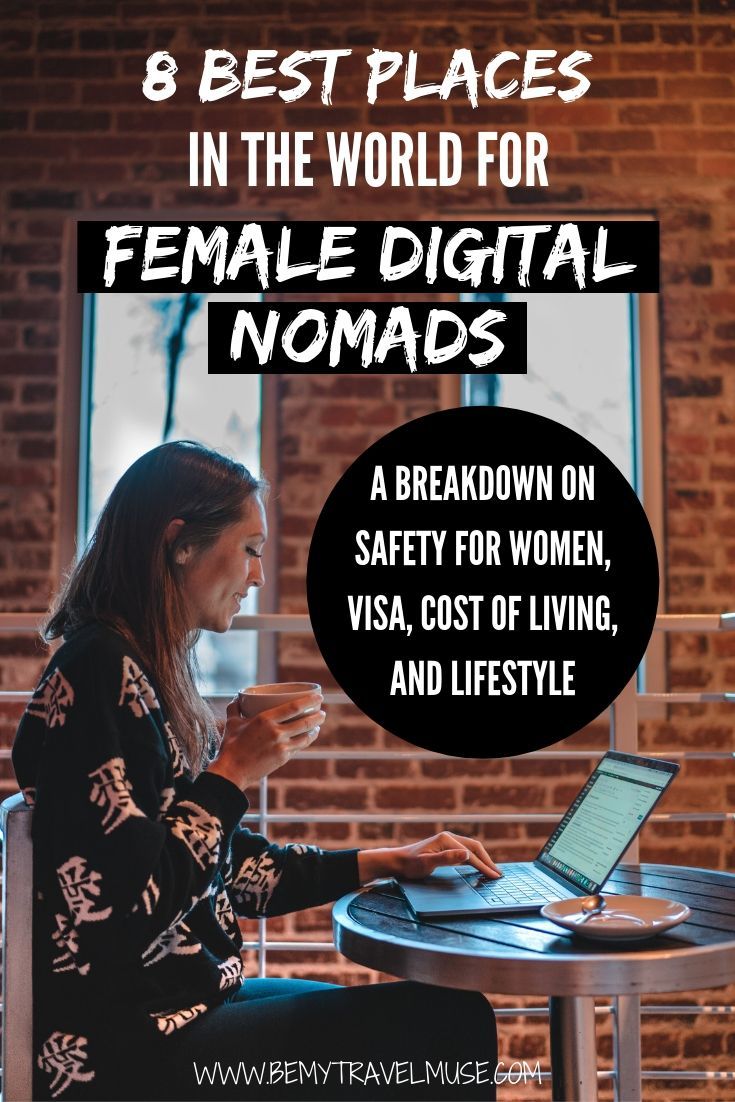
Kailey says
Hello
Any suggestions for finding digital work? I’m currently an X-ray tech but looking to get started with something remote.
Kristin says
Depends, you could try upwork or look into getting licensed to work abroad.
Lanna says
As I thought, half of it is in Asia 🙂 I have started my solo travel in Asia and its amazing! 🙂
Kristin says
It is amazing!
Anonymous says
Great post, keep up the good work, thanks for sharing!!